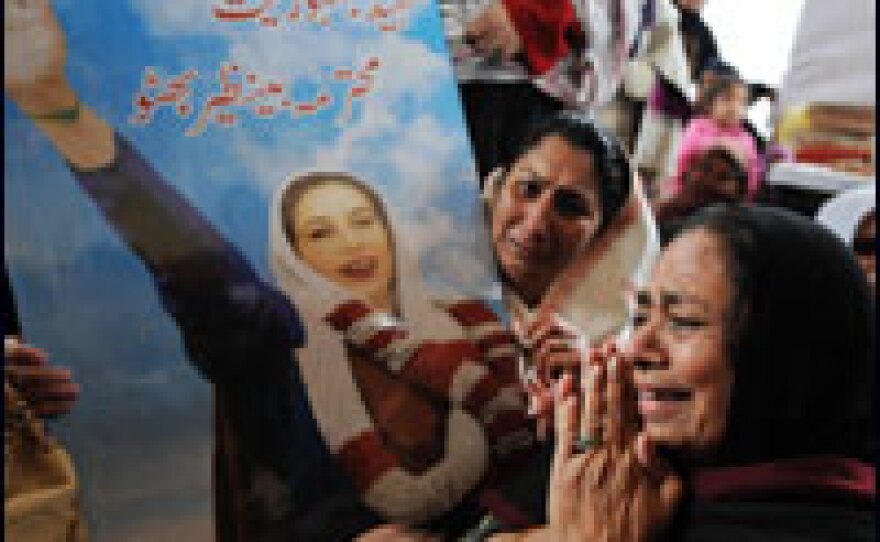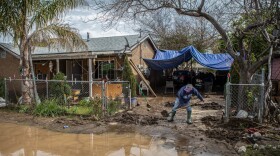
In Pakistan, police have arrested two more suspects in the Dec. 27 assassination of former Prime Minister Benazir Bhutto. The arrests come on the final day of the mourning period for Bhutto, who was killed after leaving an open-air political campaign rally.
Memorials were held throughout the country to mark the 40th day of mourning for Bhutto. In the garrison town of Rawalpindi, the cold, gray and rainy weather seemed fitting for the mood of the ceremony. Several hundred people chanted near the spot where Bhutto was killed.
Bhutto's violent death forced the delay of Pakistan's parliamentary elections, which are now due to be held Feb. 18. But her assassination also brought home the fact that Pakistan has changed. Elections over the past 20 years were relatively peaceful — now the country is plagued by suicide bombings and other terrorist attacks.
There are fears the violence will increase as the elections near. Hamid Nawaz, Pakistan's interior minister, says the country's security forces will be able to ensure safe elections.
"We are definitely going to take very elaborate security arrangements and we are very, very hopeful that everything would be fine, and we will be able to hold peaceful, free, transparent and fair elections," he says.
The government says it will deploy tens of thousands of soldiers, police officers and paramilitary to help provide security before and during elections. But often, those are the people who are targeted by extremists, particularly in the remote and lawless tribal regions and the northwest of the country. Almost half of Pakistan is off-limits to election monitors because of the security situation.
The Free and Fair Election Network has 20,000 monitors throughout the country in the lead-up to the elections. Muddasir Rizvi, the national coordinator of the Pakistani organization, says monitors cannot go into many areas. He points to the district of Swat, where the army has been fighting pro-Taliban militants during the last few months.
"Our observers have no access to go to the entire constituency because of the ongoing military operation," Rizvi says. "And some areas are completely barricaded and off-limits to anybody, practically. So we will not be able to place our observers in the polling stations."
International election monitors are also facing the same challenge. The International Republican Institute, a U.S. organization, decided not to send monitors. Other countries are sending small groups. The European Union will have about 100 people on the ground.
Hannah Roberts, the deputy chief observer for the EU mission, says it has a comprehensive security plan, which is coordinated with the Pakistanis. Roberts says there is a lot of concern about security at the head office in Brussels.
"The decision to deploy observers ... is taken at the highest level in Brussels," she says. "And this is based on the provision that's been given to us so far from the Pakistani authorities, the positive provision of police escorts, and how security conditions have developed and may change up to the election."
Pakistan's government says it is trying to negotiate a peace deal with Taliban leaders in the run-up to the elections. But previous deals have not only unraveled, they also have helped the militants grow in strength and numbers.
Copyright 2022 NPR. To see more, visit https://www.npr.org. 9(MDAzMjM2NDYzMDEyMzc1Njk5NjAxNzY3OQ001))







